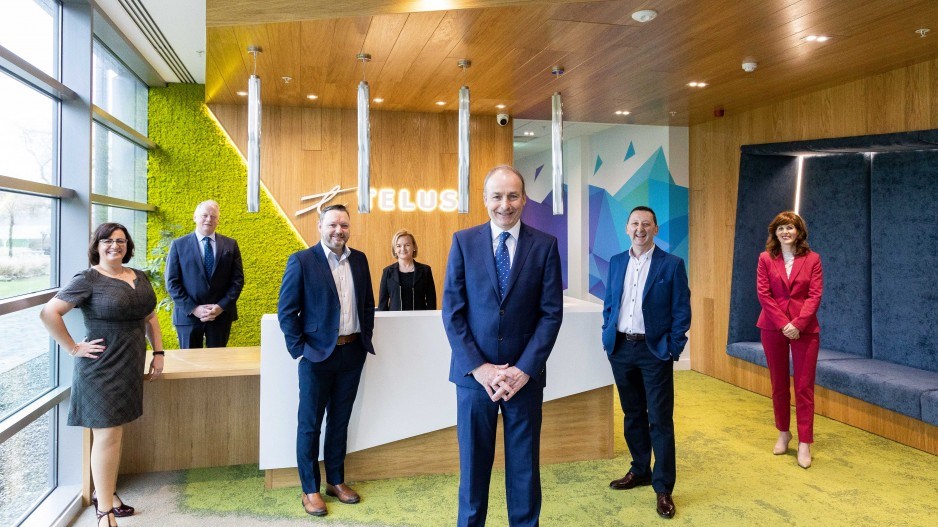Vancouver embarked on its biggest push as a satellite hub for the global tech industry in 2017 when Seattle’s Amazon.com Inc. (Nasdaq:AMZN) issued an eye-popping request for proposal to cities across North America. It would be seeking a home for 50,000 workers in what the American tech giant dubbed its “HQ2.”
Vancouver never made the shortlist among the 200-plus hopeful cities, but Amazon continued ramping up hiring plans within the province to the point where it employs a mix of 5,500 full-time and part-time workers in B.C. as of late 2021.
Flash forward nearly five years since that HQ2 push and an unprecedented flood of investor capital is pressing homegrown B.C. tech companies to be the ones rapidly expanding overseas to break into new markets and meet demands for talent.
Vancouver-based Trulioo Information Services Inc. had three workers based in Ireland prior to COVID-19. Since the pandemic, the company specializing in identity verification services raised nearly US$400 million from investors to hit a valuation of US$1.75 billion.
The Dublin office has since expanded to about 50 workers, while Vancouver remains home to 270.
“Tech is proximity to customers and access to talent. And to do it all from one location, it’s hard to solve both of those,” said Trulioo CEO Steve Munford, adding that the company also has offices in Austin, Copenhagen, San Diego, Romania and Vietnam.
As the only English-speaking member of the European Union in the wake of Brexit, Ireland now has a distinct advantage as a gateway into the EU market, according to Deirdre Moran of Ireland’s International Development Agency (IDA).
“And that’s really, really attractive for Canadian companies,” said the vice-president of technology and consumer services for the IDA’s Canada branch.
“You can set up in Ireland, you can do business with Germany, France, across all of the European countries with … no barriers in terms of hiring. So any EU citizen can live and work in any other EU country, which is very, very attractive. There’s a labour pool of 250 million people.”
There were 38 Canadian companies with international operations in Ireland employing about 4,000 people as of 2019.
That figure has since grown to 57 companies employing nearly 8,000 workers, including Burnaby legal-tech firm Themis Solutions Inc. (better known as Clio), which reached a $1.6 billion valuation last year and employs about 30 workers in Ireland.
Meanwhile, Vancouver’s Telus International (Cda) Inc. (TSX:TIXT) employs 2,000 workers in Ireland, making it the largest Canadian employer there.
But Moran said the country of five million people – about the same as B.C. – is also facing the same labour crunch as other jurisdictions and is working with policymakers on upskilling and attracting talent from other countries.
Munford, meanwhile, said some of the much-needed talent is also coming through “inorganic” measures such as acquisitions.
Last month, Trulioo acquired Copenhagen-based tech company HelloFlow, which has about two-dozen workers on its roster.
“One of the founders was Romanian, and anybody might think, “Hey, that must be a lower-cost jurisdiction,” – and actually, it’s not. There’s Google there, there’s Facebook, there’s a lot of top companies hiring engineers,” Munford said, adding that the cost difference between top engineers in countries like India or Romania has been shrinking amid the global talent crunch.
“To try to optimize for cost, if that’s not where the talent is, is short-sighted.”
Agricultural technology firm Semios Inc. is also on board with overseas expansion. It went on an acquisition spring last summer that netted it new offices in California, Washington state and Australia.
“We can obviously grow our business organically, getting more customers, building our products and expanding geographically,” founding CEO Michael Gilbert told BIV last September, shortly after securing $100 million from investors to help fund its growth. “But obviously, acquiring companies for either their product or their market is going to accelerate the plan, and for me that’s the big thing.”
Another newly minted B.C. unicorn, GeoComply Solutions Inc., faces an overseas challenge of another sort. Prior to Russia’s invasion of Ukraine, the cybersecurity firm advertised its Ukrainian office in the country’s west as being home to its largest number of employees. But the office in Kharkiv was among the first cities targeted by the Russian military, prompting GeoComply to attempt to get some of its workers to Canada.
CEO and co-founder Anna Sainsbury said the company still has operations in Ukraine, “as many of our staff are men who, of course, were unable to cross the border at this time.”
Last week, the company opened a new office in Poland amid the ongoing invasion.
“We also have over 40 families going through the new Canadian visa process to build our presence in Montreal, and we’re excited for our leadership team in the Ukraine to relocate to Canada,” Sainsbury said in an email. “We plan to build large teams around them.”




